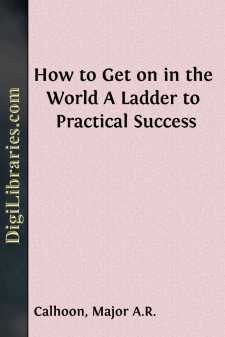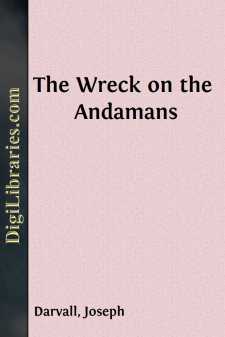Non-Classifiable
- Non-Classifiable 1768
Non-Classifiable Books
Sort by:
by:
John Morley
ON PATTISON'S MEMOIRS. To reckon the subject of this volume among leading minds who have stamped a deep influence on our generation, is not possible even to the friendliest partiality. That was not his position, and nobody could be less likely than he would himself have been to claim it. Pattison started no new problem. His name is associated with no fertile speculation, and with no work of the...
more...
THUNDER BAYDeep calm from God enfolds the land;Light on the mountain top I stand;How peaceful all, but ah, how grand! Low lies the bay beneath my feet;The bergs sail out, a white-winged fleet,To where the sky and ocean meet. Their glacier mother sleeps betweenHer granite walls. The mountains leanAbove her, trailing skirts of green. Each ancient brow is raised to heaven:The snow streams always,...
more...
JUDGMENT OF COOKE, RICHARDSON and SOMERS JJ. On 5 August 1981, for reasons then given, this Court ordered that these proceedings be removed as a whole from the High Court to this Court for hearing and determination. They are proceedings, brought by way of application for judicial review, in which certain parts of the report of the Royal Commission on the Mount Erebus aircraft disaster are attacked. In...
more...
PEARLS OF THOUGHT. A. Ability.—Natural abilities can almost compensate for the want of every kind of cultivation, but no cultivation of the mind can make up for the want of natural abilities.—Schopenhaufer. Words must be fitted to a man's mouth,—'twas well said of the fellow that was to make a speech for my Lord Mayor, when he desired to take measure of his lordship's...
more...
by:
Norman Bentwich
I THE JEWISH COMMUNITY AT ALEXANDRIA The three great world-conquerors known to history, Alexander, Julius Cæsar, and Napoleon, recognized the pre-eminent value of the Jew as a bond of empire, an intermediary between the heterogeneous nations which they brought beneath their sway. Each in turn showed favor to his religion, and accorded him political privileges. The petty tyrants of all ages have...
more...
CHAPTER I WHAT IS SUCCESS? It has been said that "Nothing Succeeds Like Success." What is Success? If we consult the dictionaries, they will give us the etymology of this much used word, and in general terms the meaning will be "the accomplishment of a purpose." But as the objects in nearly every life differ, so success cannot mean the same thing to all men. The artist's idea of...
more...
INTRODUCTION In a book of this kind there is no particular need for dwelling at length on the desirability of having a fireplace. That will be taken for granted. It is enough to say that in these days a home can scarcely be considered worthy of the name if it does not contain at least one hearth. There is some inexplicable quality in a wood fire that exerts almost a hypnotic influence upon those who...
more...
CHAPTER I. INTRODUCTORY. The Nitro-Explosives—Substances that have been Nitrated—The Danger Area—Systems of Professors Lodge, Zenger, and Melsens for the Protection ofBuildings from Lightning, &c. The manufacture of the various nitro-explosives has made great advances during late years, and the various forms of nitro-compounds are gradually replacing the older forms of explosives, both for...
more...
by:
Joseph Darvall
PREFACE. The Author, owing to circumstances, has had access to authentic documents and facts, relating to one of the most remarkable shipwrecks which have ever happened, that of the troop-ships Runnymede and Briton, on the morning of the 12th of November, 1844, upon one of the Andaman Islands. In reading these, it struck him forcibly, that the circumstances, if thrown into the shape of a narrative,...
more...
by:
John Mastin
CHAPTER I. INTRODUCTORY. What constitutes a precious stone is the question which, at the onset, rises in the mind, and this question, simple as it seems, is one by no means easy to answer, since what may be considered precious at one time, may cease to be so at another. There are, however, certain minerals which possess distinctive features in their qualities of hardness, colour, transparency,...
more...











